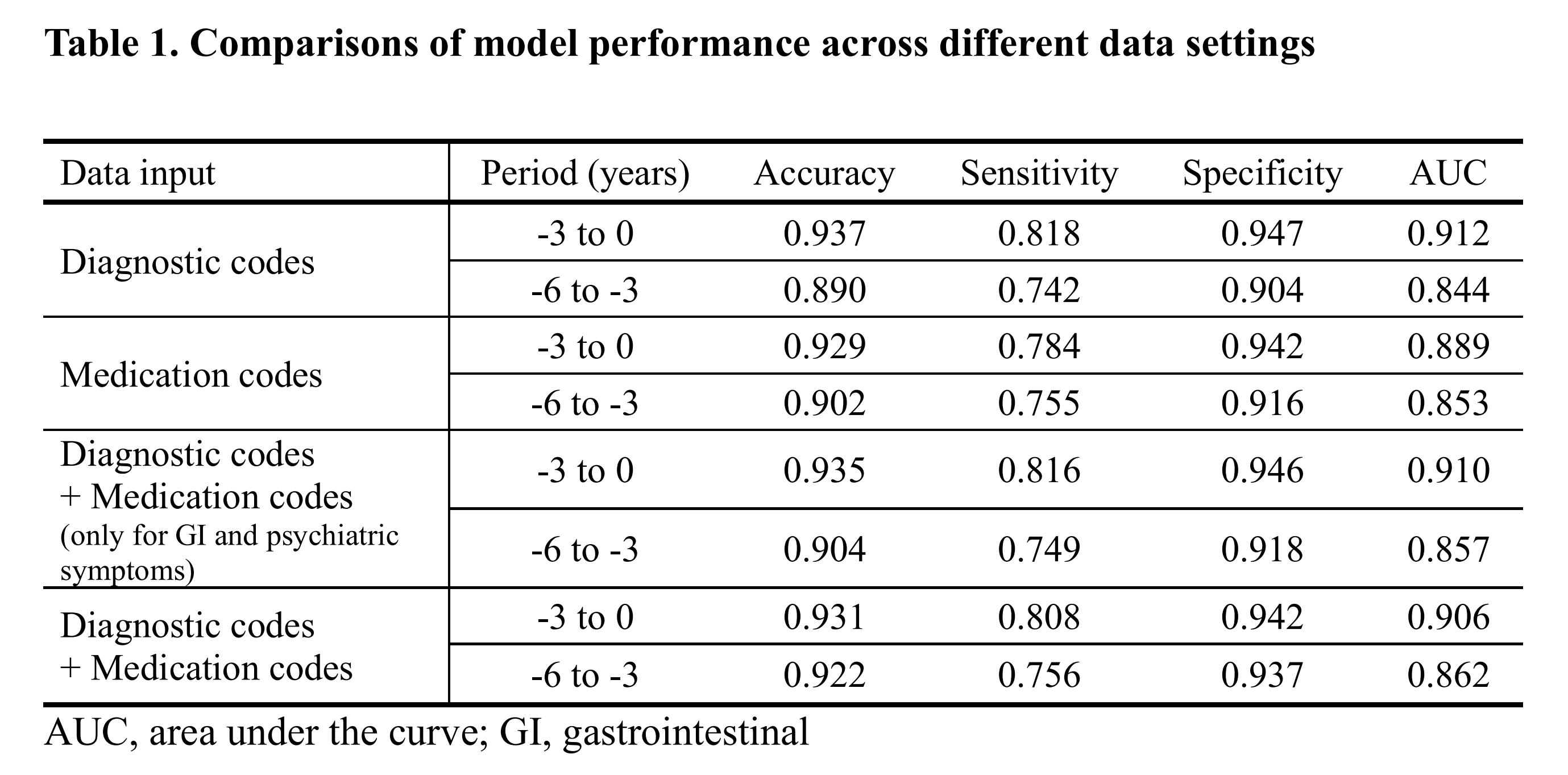Category: Parkinson's Disease: Non-Motor Symptoms
Objective: Our previous study successfully predicted the incidence of Parkinson’s disease (PD) using only diagnostic codes unrelated to motor symptoms during prodromal periods [1]. This study aimed to enhance the performance of deep learning-based screening for prodromal PD using medical claim data, including prescription information.
Background: PD is characterized by a variety of prodromal symptoms, with most research on these symptoms being retrospective. While some symptoms, such as REM sleep behavior disorder, are highly specific, others, like constipation or depression, are common in the general population. It is challenging to predict PD at risk based solely on less specific prodromal symptoms. Even with less specific symptoms, prediction accuracy can be improved with a vast amount of information and sophisticated deep-learning techniques.
Method: We sampled 820 PD patients and 8,200 age- and sex-matched non-PD controls from the Korean National Health Insurance cohort data. The Long Short-Term Memory algorithm was developed using various combinations of diagnostic codes, medication codes, and prodromal periods.
Results: During the prodromal period of -3 to 0 years, screening for PD with only diagnostic codes yielded a high accuracy of 0.937 (Table 1). Adding medication codes for the same period did not enhance accuracy, ranging from 0.931 to 0.935. However, during the earlier prodromal period of -6 to -3 years, the accuracy of PD screening decreased to 0.890 using only diagnostic codes. The inclusion of all medication code data increased accuracy remarkably to 0.922.
Conclusion: The deep learning algorithm that uses both diagnostic and medication codes is effective for screening PD, especially for earlier prodromal periods. Developing a surveillance system with automatically collected medical claim data to screen for at-risk PD patients is cost-effective. It could streamline the process of developing disease-modifying drugs by focusing on the most appropriate candidates for precise diagnostic tests.
Table 1
References: [1] Yoon S, Kim M, Lee WW, Long Short-Term Memory-Based Deep Learning Models for Screening Parkinson’s Disease Using Sequential Diagnostic Codes. J Clin Neurol 2023; 19(3): 270-279.
To cite this abstract in AMA style:
WW. Lee, Y. Koo, M. Kim. Predicting prodromal Parkinson’s disease with a deep learning algorithm using medical and prescription data [abstract]. Mov Disord. 2024; 39 (suppl 1). https://www.mdsabstracts.org/abstract/predicting-prodromal-parkinsons-disease-with-a-deep-learning-algorithm-using-medical-and-prescription-data/. Accessed December 31, 2025.« Back to 2024 International Congress
MDS Abstracts - https://www.mdsabstracts.org/abstract/predicting-prodromal-parkinsons-disease-with-a-deep-learning-algorithm-using-medical-and-prescription-data/

